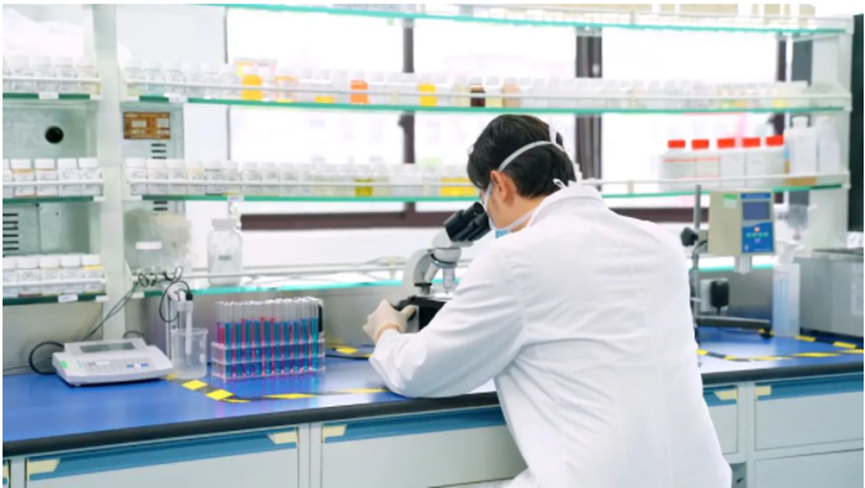Drug therapy is the basis of disease treatment. There is a class of drugs, one point more is poisonous, and one point less is ineffective. Drugs are safe and effective only within a certain concentration range!

Host:
Therapeutic Drug Monitoring (TDM) is a technology that specifically detects the concentration of drugs in blood or body fluids. Based on this detection technology and refer to the pharmacokinetic/pharmacodynamic state of the drug in different patients, a dosage regimen suitable for the individual can be formulated. And the medication can be monitored and adjusted in a timely manner according to the dynamic changes of the patient's physiological state, combined medication and other factors, so as to realize individualized precision drug treatment.
The development of Therapeutic Drug Monitoring technology has been relatively lagging behind in recent years, and the demand for individualized and precise clinical treatment is increasing. Today, we invited Dr. Zhou, the chief technology officer of Diagreat, to explain the latest progress and characteristics of this technology for us?
Dr. Zhou:
Therapeutic Drug Monitoring is the use of sensitive and reliable detection technology to measure the drug concentration in blood or other body fluids, and to analyze the relationship between concentration, curative effect and toxicity, and then design or adjust the dosage regimen. The therapeutic drug concentration can be tailored to meet the individual's safe, effective and economical drug therapy plan, and provide patients with more efficient, safe and individualized precision treatment, which has broad application prospects. The current application of Therapeutic Drug Monitoring lags behind the clinical needs, mainly in the following aspects:
01.Therapeutic Drug Monitoring technology is an interdisciplinary technology that requires comprehensive knowledge of clinical medicine, laboratory medicine, and clinical pharmacy, which is relatively difficult.
02.The existing Therapeutic Drug Monitoring system is derived from pharmacokinetic analysis, where the detection equipment is expensive at least costing millions of dollars, and the operation is cumbersome due to the complicated sample pretreatment, and most of test steps are manual and lack full automation.
03.The traditional Therapeutic Drug Monitoring technology has a long detection cycle and cannot issue test results in time, so that timely and effective guidance of precise drug therapy cannot be achieved.
Host:
Therapeutic Drug Monitoring is of great value in guiding individualized and precise treatment. May I ask Dr. Zhou, to solve the pain points of the current situation, what are the advantages of the fully automatic chemiluminescent TDM technology at Diagreat?
Dr. Zhou:
Our fully automatic chemiluminescent TDM technology is based on the use of self-developed monoclonal antibodies and the directional coupling technology of specific modified small molecule directional couple recognition small molecule, which can specifically recognize small molecule drugs and has high detection sensitivity. For example, Tacrolimus, as the first-line drug for anti-rejection after liver and kidney transplantation, has achieved good therapeutic effect in clinical practice. However, due to the narrow therapeutic window under its effective dose and the large individual differences in pharmacokinetics, bioavailability, sensitivity and tolerance, when given the same dose of Tacrolimus, different patients will have different blood drug concentrations, concentration too low has no effect, and too high can easily cause toxic and side effects. Compared with traditional monitoring methods in complicated operation, high cost, long detection time, few detection items, and that the clinical results cannot be timely and effectively fed back, Diagreat TDM one-stop chemiluminescence solution can realize sample input and result output, fully automated high-speed detection, stable and reliable results, and results can be output within minutes, which will be of great help in emergency case. The detection equipment is small and exquisite, up to 200 tests per hour, and the maintenance is also very simple. It is suitable for laboratory/pharmaceutical departments of tertiary hospitals, etc., and can meet their high-precision and large-sample testing requirements.
Summary
Therapeutic Drug Monitoring, as a pharmaceutical technology with precision treatment, provides reliable support for rational drug use in the fields of organ transplantation, anti-infection, anti-epilepsy, anti-asthma, heart failure treatment, and mental illness. We recently launched products, Risperidone, Linezolid, Paclitaxel, 5-Fluorouracil and Voriconazole. What else is coming next in the TDM field, let’s keep an eye on it.